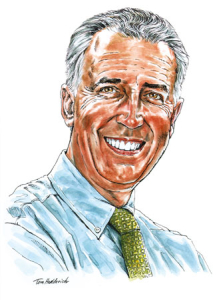MIPCOM is great because average people like me can mingle with great talents, and the fact that we’re able to recognize this, makes me and people like me somewhat “great.”
 It is with great disappointment, sadness and dismay that I recently realized that normal people like me cannot be great. You might say, “But being normal is already a big achievement!” Yes, but normal means average and average is not great. Naturally, one could argue that average is better than mediocre and mediocre is better than ordinary and ordinary is better than being a loser. But this exercise is only to measure the degree of separation from greatness. And to think of it, even a “paranormal” person is called “medium,” from the Latin [in the] “middle.”
It is with great disappointment, sadness and dismay that I recently realized that normal people like me cannot be great. You might say, “But being normal is already a big achievement!” Yes, but normal means average and average is not great. Naturally, one could argue that average is better than mediocre and mediocre is better than ordinary and ordinary is better than being a loser. But this exercise is only to measure the degree of separation from greatness. And to think of it, even a “paranormal” person is called “medium,” from the Latin [in the] “middle.”
Sometimes even normal people are scary, at least to kids with autism, as the 2006 film Normal People Scare Me (about autism and produced by Joey Travolta, John’s brother) tried to demonstrate.
Then we have to face the fact that, according to Francoise Gilot, the artist, lover and muse of Pablo Picasso who later married Jonas Salk (of polio vaccine fame), “It’s better to be with great people than mediocre people. They have the same problems, but the former are more interesting.”
I also understand that the Japanese revere normalcy and despise greatness. They even have a saying: “The nail that sticks out get hammered first.” But it’s no consolation.
Talented people are not normal because they’re great, and we know that great people cannot be normal. Wolfgang Amadeus Mozart was a genius, but was he normal? No! Are great athletes like Dennis Rodman and Diego Maradona normal? Pleeeeease! Were great actors such as Marlon Brando or Peter Sellers (who used to talk with God) normal? Were Andy Warhol, Frank Zappa or Steve Jobs, who made a point of driving a car without a license plate (he purchased a new car every time the grace period of driving without license plates expired) normal? Clearly, the answer is no.
Yes, there is the rule of thumb that 10,000 hours of practice are sufficient to achieve excellence in almost everything. But just doing it within a reasonable amount of time requires some form of abnormal discipline. And talent has nothing to do with IQ or intelligence. Geniuses are not always street smart. Knowledge and intelligence are not interlinked. Picture the character of Sheldon Cooper from The Big Bang Theory television series: High IQ, low common sense.
Apparently, not even normal people like to be seen as normal. Indeed, NBC canceled The New Normal (from 20th Century Fox) after just one season and now CBS is trying again with Pure Genius (from NBCUniversal).
One could emerge as “above normal” by becoming eccentric, but that doesn’t make people great. For example, not too long ago, Milena Santos, the 30-year old wife of Alessandro Teixeira, decided to celebrate her husband’s appointment as Brazil’s Minister of Tourism with a striptease at a public event (she’s a former Miss Bumbum, winner of the best derriere contest). Is she eccentric? Yes. Is she great? Você decide!
But there are exceptions. Voltaire, James Joyce, Oscar Wilde, Georges Bizet, Karl Marx, Victor Hugo, Samuel Beckett, Nikolai Gogol, Winston Churchill, Gabriele D’Annunzio, Marlene Dietrich, Ernest Hemingway and Salvador Dali were all eccentrics, and all were great.
At times, people have to go to extremes to be great. Look at Jesus Christ. An Italian friend of mine, who is a stand-up comedian, even refuses to pay for bus rides because, as he jokes, “Jesus paid for all of us!” But while Jesus was great, this comedian is just average.
One consolation, however, is that at MIPCOM, all of us normal people can mingle with great talents, and the fact that we’re able to recognize it make us somewhat “great.”
by Dom Serafini
Audio Version (a DV Works service)











Leave A Comment